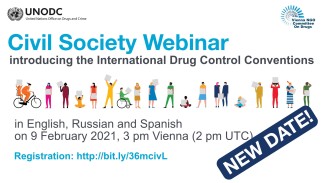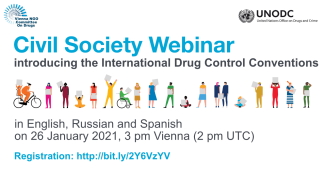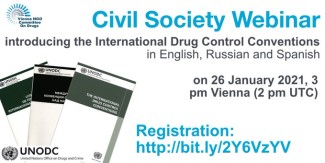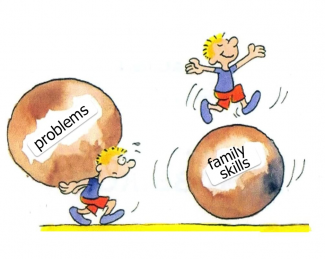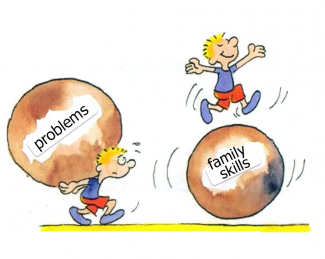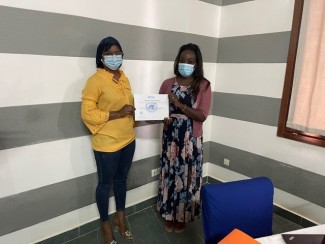Introduction to the International Drug Control Conventions
Joint VNGOC and UNODC CSU webinar for civil society, introducing the International Drug Control Conventions.
The Vienna NGO Committee on Drugs (VNGOC) together with the UNODC Civil Society Team is inviting you to a joint webinar introducing the International Drug Control Conventions and the treaty mandated functions of UNODC and CND.
